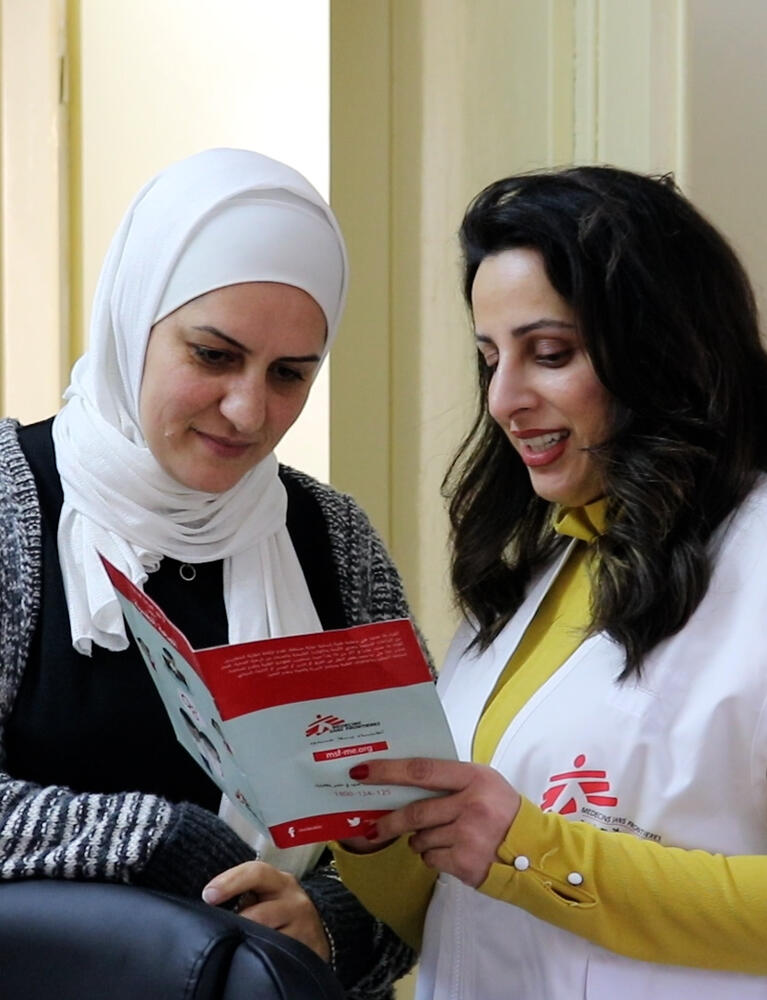Noura Arafat, an MSF intercultural mediator, has lived in Nablus in Palestine’s West Bank all her life. She helps women from her community access the mental health support they need. This support is more crucial than ever since the start of the war in Gaza, which is having a devastating impact on access to basic services, such as medical and mental healthcare in the West Bank.
As someone with six siblings and a very tight-knit community network, family life is very important to Noura Arafat. She enjoys socialising, hiking and picnics with friends and family.
But these days, they don’t venture beyond Nablus city. “We don’t feel safe, especially recently with the high number of checkpoints all around the city. We try to be inside the city as much as we can.”
Across the occupied West Bank, including Nablus, the situation has continued to worsen, with greater movement restrictions and increased violence by settlers and Israeli forces.
Women in Palestine in general and in Nablus, have all kinds of challenges. Grief. Almost every day we lose a Palestinian. So, we work with the mothers every day. They grieve the loss of their sons, their husbands, their children, which is really sad. And sometimes it's just a lifelong grief which has no solution.” Despite this, there are limited mental health services in Nablus outside of MSF’s.
“[People] think it's just a conflict. To me, it's not. We are the people who suffer every day since we were born. When you see people suffering psychologically with different disorders, obsessive compulsive disorder, for example, and you think it's simple. But when you delve more into the history of the patient, it's because a father has been imprisoned for life or because the patient has never seen her father, for example. Every single aspect of our life is really affected by the occupation with things that you can never imagine.” This includes access to healthcare for many Palestinians.
In her work, Noura has always focused on empowering women. Now, as an intercultural mediator, she facilitates psychotherapy sessions between patients and [international] MSF psychologists by interpreting and mediating. She also briefs the psychologists about the situation in Palestine, culture, history, background, and unique aspects to the community. (The MSF team also includes locally hired psychologists).
“I try hard to make the international psychologists know all aspects of this culture very well so they can approach the patients with ease and smoothly.
“When we see women every day, they talk about their lives, their difficulties, their ambitions. These women know their strengths. They know how to continue their lives. They know how to cope with the difficulties because, you know, these traumas and difficulties are ongoing. But we try to give them the means and the skills to be more resilient, to cope and to find hope in life, which is really very special to my heart.”
“My role is important because without the interpretation first, there isn't any session for the psychologist or for the patient. So I am the ‘tongue’ of the patient and the ‘tongue’ of the psychologist. And when the psychologist knows more about the history, the culture, the background of the patient, they have better understanding and can sympathise more.
Noura’s insights and added understanding of cultural nuance supports and shapes the treatment plan. She says: “When the patient feels confident that their [voice] is being expressed well… they feel safe and confident and they trust [in] this relationship with the psychologist.”
We hope… to live in peace with our family without having these worries every day of losing someone, losing something. This loss, worry and concern is just sticking to our heads all the time.”
Until that time, she continues working to support women in her beloved community to access the psychological support services they need.
Noura’s interview has been edited for brevity.



